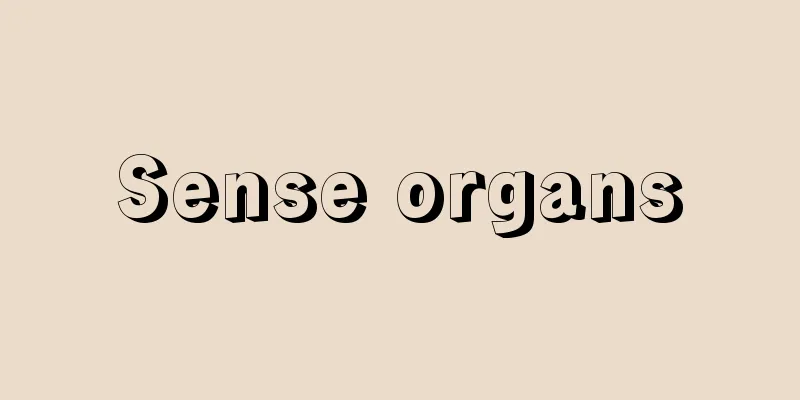Sense organs

|
〘noun〙 A general term for the organs that govern the senses. The organs of sight, hearing, olfaction, muscle spindles, etc. are made up of sensory cells that receive specific stimuli, each with a specialized structure. In a broad sense, it includes the nerves that transmit stimuli and the central nervous system that perceives them. Sense organs. Sense organs . *Lyric Song (1932) by Yasunari Kawabata "Scents, sounds, and colors are all different, simply because the human sensory organs that perceive them are different." Source: The Selected Edition of the Japanese Language Dictionary About the Selected Edition of the Japanese Language Dictionary Information |
|
〘名〙 感覚をつかさどる器官の総称。視覚器、聴覚器、嗅覚器、筋紡錘体などで、特定の刺激を受けいれる感覚細胞が集まってそれぞれ特殊な構造をもつ。広義には刺激を伝達する神経とそれを知覚する中枢を含む。感覚器。感官。覚官(かっかん)。※抒情歌(1932)〈川端康成〉「香も音も色もただそれを感じる人間の感覚器官がちがってゐるだけで」
出典 精選版 日本国語大辞典精選版 日本国語大辞典について 情報 |
>>: Sensible things - Sensible things
Recommend
Takebe
The former name of a town (Takebe-cho) in Mitsu-g...
Museum of Modern Art, New York
One of the most representative museums of modern ...
JARL - Jarre
《 Japan Amateur Radio League 》General incorporated...
Foot-striped
An annual grass of the Gramineae family (illustrat...
General Motors Corp.
The world's largest American automobile compan...
Hofmeister, W.
… In animals, in addition to the above examples o...
Local Samurai - Jizamurai
This refers to the powerful headman class of vill...
School Hygiene
〘Noun〙 = gakko hoken (school health) ※Detailed exp...
Surprise Box - Surprise Box
A toy (gangu) in which a doll or other object sud...
Okihiramushi - Okihiramushi
... Flatworms commonly found in the intertidal zo...
Where to - Where to
A representative short story from Masamune Hakuch...
Leonid Maksimovich Leonov
A Soviet novelist. Born in Moscow. His father was...
Ehrlich's side chain theory
…During this time, he achieved great success by d...
A view of investigation based on questioning -
...There is some debate about how current law str...
Kimi Kishigami
...It incorporates Western vocal styles into Japa...





![Sawauchi [Village] - Sawauchi](/upload/images/67cbb10dc9fed.webp)



